Charting a pedagogical course through stormy seas
by Victoria Jefferies Sea state: rough, occasionally very rough, rarely smooth! It’s rarely plain sailing in Early Childhood Education and Care (ECEC) with its myriad
by Frances Giampapa and Claire Lee
A wealth of evidence demonstrates the fundamental role played by early years (EY) education in shaping a thriving and equitable society. The importance of valuing and nurturing skilled professionals in this sector is more evident than ever before. Years of underfunding, the devaluing of skills and qualifications and the post-pandemic recruitment and retention crisis have left their mark.
As researchers working with EY educators in England (and more recently across the UK), we understand the challenges they face in underfunded and understaffed educational settings. We also recognise the frustration experienced by some of our EY colleagues in coping with directives, initiatives and assessment practices which sometimes seem to have little relevance to their settings or the children within them and do little more than undervalue their professional judgement.
To address these issues, and to foster a culture of collaborative learning and professional growth, we initiated the Researchful Practice Toolkit in Early Years Settings. In this project we developed an online self-study toolkit and workshops, and we supported small communities of EY educators to access and evaluate research, to develop and conduct projects that addressed their interests and needs in their own settings, and to embed research within their everyday practice. We drew on ample evidence that practitioner inquiry energises teachers, building confidence and allowing them to gain insight into matters of importance to them and to continually develop their practices to ensure the best possible outcomes and experiences for their learners.
In this blog post, we share some findings from the project and suggest the potential of “researchful practice” to empower teachers, enhance their skills, confidence and shape their professional identities.
One of the benefits of the Researchful Practice Toolkit project was the insight the teachers gained through small-scale research projects in their own settings. Whether they were investigating how children used their outdoor area, how learners responded to certain prompts in problem-solving activities, or what practitioners thought about a new assessment system that had been put in place, the teachers’ small-scale inquiries provided unexpectedly rich understanding of matters that were relevant to them and the children in their care. They used the evidence they had generated to prompt discussion with colleagues and adapt their practices.
“I interviewed six I think members of staff in the end and I know them all really well – or I thought I knew them really well. And they all said different things.”
“I definitely feel a lot more confident to trial things in different ways, and then go and say, … ‘Here’s the evidence I can produce [for] you. Can we have a discussion?’ And I definitely feel a lot more confident at that side of it, and using the skills to help me get the evidence.”
From seeing research as something massive and complicated, conducted elsewhere by “scholars”, the teachers talked about research becoming embedded into their everyday life. They also described increased confidence to step back and critically reflect upon their practice before implementing new initiatives.
“Just to think, ‘Actually, no, we need to we need to have a look at this further and research this and see why this is happening or what we can do more and really look at particular aspects of it, in like a systematic way’.”
Some of the teachers talked of experiencing a “sea change” in their relationship with data. They had previously seen data as “a scary outcome that you’re too afraid to look at”, a tool beyond their control that was used mainly to evaluate their performance. Through the Researchful Practice Toolkit project, they began to see data as a valuable resource that they could generate in simple, interesting and varied ways, allowing them to address questions they had devised themselves. Data transformed from being a trigger for anxiety to a source of interesting and valuable insight.
“Now it’s like, ‘Oh, let’s have a look at the data. Let’s see it. What does it show us?’ So it’s much kinder… much nicer to come and reflect on that data rather than looking at percentages.”
Teachers also described their frustration with the “blunt tools” they previously had at their disposal which, they said, failed to give them usable information. Already highly experienced at gathering qualitative data on children, they began to see how they could apply observation and other qualitative methods as an alternative to quantitative data-crunching to address questions relevant to their work.
“I often find it very difficult to extrapolate meaningful trends… from school assessment data with its relatively small cohort size… The big question is: Who is this for? If it’s not for the people who are working on the ground, at the coalface with the children… it becomes inconsequential…. Qualitative research is the way to go for me!”
Our findings also suggest that the ability to use their own robust evidence to inform their judgement and speak from a position of evidence-informed authority provided some of the teachers with a renewed confidence and even enhanced their professional identity.
“I didn’t feel… that I was able to have a say. I was just a, a worker, if you like. Whereas now I am a lot more confident and just become more confident in my role.”
Some of the teachers were taking up new leadership roles and described ways in which they would use researchful practice to improve the quality of teaching and learning.
“I plan to share the findings I make with my setting to share and open discussions regarding the importance of questioning and how we ensure the most impact on the children’s learning.”
“Over 10 years of cuts and the impact of Covid has created a re-active culture which at worst becomes fire-fighting on a daily basis. This is extremely demoralising and leaves little head-space.”
As described by one of the teachers, morale among early years educators in England is extremely low, with few opportunities for reflection, let alone professional development. Years of underfunding and an absence of a clear career progression framework, compounded by low pay, challenging working conditions and long hours (Social Mobility Commission, 2020), have resulted in a recruitment and retention crisis. We do not suggest that researchful practice is a solution to these entrenched problems, which require political will, a coherent strategy and long-term financial commitment. However, our project provides evidence of the positive impact on teachers when provided with the conditions, autonomy, time and support to develop their researchful practice.
Researchful practice represents a valuable way of working for EY professionals, enabling them to drive positive change in their own settings through accessing and evaluating research, developing and conducting their own projects, and embedding research into their everyday life. Early years teachers participating in our Researchful Practice Toolkit project reported gaining important and setting-relevant insights, which allowed them to enhance their practice and that of their colleagues. More than that, however, they spoke of increased confidence, authority and a renewed sense of professionalism. In the words of one of our participant teachers, researchful practice offers a much-needed “breath of fresh air”.
Dr Frances Giampapa is a Senior Lecturer in education at the School of Education, University of Bristol. Dr Claire Lee is a Research Fellow in the Centre for Psychological Research, Oxford Brookes University.

by Victoria Jefferies Sea state: rough, occasionally very rough, rarely smooth! It’s rarely plain sailing in Early Childhood Education and Care (ECEC) with its myriad
The letter below sets out our key asks for the next government.
Early Education Associate, Debi Keyte-Hartland reflects on a recent commission by Balcarras Teaching School Hub In Gloucestershire to deliver a four-day course on Sustained Shared
Early Education Associate, Caroline Eaton writes about developing bespoke support for childminders for Oldham Borough Council. Since 2021, Early Education has been working alongside Oldham
by Katherine Gulliver Introduction Early Education was recently asked to review the special educational needs and/or disabilities (SEND) provision in the early years within one
Clare Devlin, Early Education Associate What aspects of physical development should we focus on within the Early Years Foundation Stage (EYFS) and other early years
By Debi Keyte-Hartland, Early Education Associate This article is based on one included in the Early Education Journal no 100. To access the full article
In this article, Kate Irvine from Bristol Early Years discusses the impact of practitioners engaging in a sustained process of CPD through cluster groups and
by Dr Jo Albin-Clark, Edge Hill University and Dr Nathan Archer, Leeds Beckett University Inspection in the news Being involved in education in England involves
What are “Fundamental British Values”? by Vicky Hutchin The so-called “Fundamental British Values” form a part of the Prevent Duty, introduced in 2015 and last
The open letter below was sent to Ofsted in November 2023. Download Ofsted’s response We the undersigned are writing to you about the recently published
Early childhood education today has been influenced by key figures such as Froebel, Montessori, Isaacs and MacMillan. Much recent research has supported their ideas although
Sustained shared thinking: An episode in which two or more individuals “work together” in an intellectual way to solve a problem, clarify a concept, evaluate
Early years pedagogy is the theory that informs the practice of teaching children in the early years. The pedagogical research has been carried out by
by Cathy Gunning What is reflective practice? Reading a book by Donald Schon early on in my career as a teacher opened my eyes to
The Early Career Framework has been designed by the Department for Education in England to support newly qualified teachers in England with a structured package of support
The following extracts from past early years teaching newsletters have a feature which supports your team dialogue around pedagogy and practice dilemmas and reflective practice.
Last updated Spring 2018. The preschools of the Reggio Emilia in Northern Italy inspire us with their pedagogy and practice in giving children rich encounters
In most cases, sound early years principles and practices are already in place in settings. The EYPP funding allows settings to review and refine what
Who was Friedrich Froebel (1782-1852) Born on 21 April 1782 Friedrich Froebel was a German educator who invented the kindergarten. He believed that “play is
This article by Early Education Associate Anni McTavish explores the term “cultural capital”, and what it might mean for early years practitioners and their settings.
Welcome to the e-book Child-Centred Competences for Early Childhood Education and Care. The book brings together four years of research undertaken by early childhood academics
Raymond Williams maintained, after years of examining constructs of culture and society that “Culture is one of the two or three most complicated words in
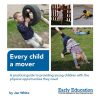



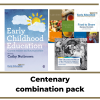
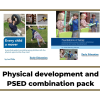

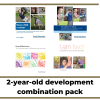
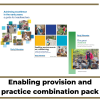
Early Education
2 Victoria Square
St Albans
AL1 3TF
T: 01727 884925
E: office@early-education.org.uk